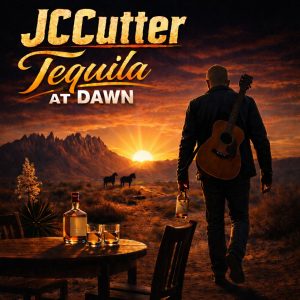Sunrise Records Chief Doug Putman Talks Rescuing UK’s HMV Music Chain, Plans to Bring It Profitable
Canadian music retailer Sunrise Records’ purchase of iconic U.K. music chain HMV happened very quickly. It was only 11 days ago that Sunrise’s president, Doug Putman, flew in from Canada to England and this week emerged as HMV’s new owner, saving the bankrupt business in the 11th hour.
Putman purchased Sunrise in 2014 when it was down to five locations, growing the chain to 10 stores in Ontario before purchasing HMV’s 70 Canadian locations in 2017. Now, the Canadian entrepreneur tells Billboard he plans to bring the British HMV stores — which will keep the HMV name — profitable by the end of this year.
Billboard spoke with Putman over the phone from London following news of the acquisition, discussing the similarities and differences in the countries’ retail landscapes, his ambitious goal to bring into the black and if he would ever consider restoring Hollywood’s iconic Tower Records to its early glory.
When did you first set your sights on expanding overseas?
We didn’t really think too much about it until Dec. 28, when the news broke [it was in administration] … but just figured we’d wait and see what happened out there and didn’t do much with it. And then as it dragged, very late in the game, we thought, well, we should probably get out there and take a look. We flew out last Monday or Tuesday and saw the information on HMV on the Wednesday very late at night, and then put together a deal that we thought made a lot of sense.
And you had two big competitors at the time that also wanted to purchase HMV: High Street sporting goods entrepreneur Mike Ashley and a management buyout led by HMV MD Neil Taylor.
Yeah. They don’t let you know too much about that side of it. We really didn’t know, except for what the media was reporting. To be honest, we were pretty deep into it from that Wednesday night — every day, 15 hours a day with lawyers and accountants and everything else, so I didn’t see a lot of the media coverage.
What are the differences between the Canadian and U.K. retail landscape?
It’s tough [in Canada] right now in retail and you’ve got to have a pretty big organization to make it work and have your expenses under control. There’s a bit more uncertainty [in the U.K.]. They’ve got Brexit going on, pretty high tax rates, so I think it’s a little bit tougher — a lot more companies struggling. But there’s definitely lots of similarities and, decidedly, it is tough at retail right now.
When you bought the Canadian HMVs, you said you would make it profitable by 2018. Were you able to do that?
We were profitable the first year, so we were profitable in 2017.
Are there any differences that you’re aware of in terms of consumer habits for music?
No, it seems very similar. You’ve got a big online retailer like Amazon. I think it’s very relevant in Canada; it’s very relevant here. That’s a pretty constant. You’ve got rents being a challenge and that’s both Canada and the U.K. Ultimately, it’s very similar. And both for countries you’ve got very passionate people when it comes to entertainment and music.
HMV Canada was losing $100,000 a day when you bought it. What is the shape of HMV in the U.K.?
Ultimately there was certainly a lot of debt associated with the company. I think it was $30 million or $40 million in debt, or something like that. Obviously a very big number. Very similar shape to Canada. It was losing an awful lot of money. It certainly didn’t make sense for them to keep running it the way it was.
Staffing numbers seem similar too. There were 1,300 staffers in Canada; you made offers and not everyone accepted. How many did you retain and what are your plans in the U.K.?
In Canada we ended up retaining right around 1,000 people. In the U.K. they employ 2,100, but as of today we’re a little over 1,600. I’m still hopeful that we can work with landlords to find a way to make deals work so that we can get that number up to around 1,800 people.
How does it stand now in terms of keeping and closing stores?
Twenty-seven have closed at this point. We’re still, again, even in those closures, trying to work with the landlords to see if there is an amicable solution. We’re at about 100 stores right now that we kept. We hope that that number grows, but ultimately for it to grow or even maintain at 100 stories, you need to get support from landlords, and you need that pretty badly. Over the coming weeks we’ll have a better idea of what that store count looks like.
In Canada, there were some companies whose future was threatened because they were owed money from HMV, but it was too late for you to help because the company was in liquidation. In the U.K. they have far more indie labels. Is that out of your hands?
Yeah, it still is. The way the legal process works [in the U.K.] is everything is out of your hands. Very similar to Canada. It’s fully up to the administrators. There’s nothing you can really do. You can’t legally offer to do anything. All we can look at right now is how do we work with those suppliers to help them get as much money back by working with us and getting sales, because obviously we care quite a bit about everybody’s livelihood and we need to make sure that these suppliers continue. We’ve met with a lot of them and have found some really good go-forward strategy. I’m hopeful that we don’t see any bankruptcies come because of HMV and what happened. We’re definitely very aware of it.
I’m sure everyone was happy that you’re keeping the HMV name, but when you went over there were you thinking it would be Sunrise?
Yeah. When I went over on Monday, the whole thought in my mind was this is going to go to liquidation and we will operate as Sunrise and open up the stores. But as we started to dive into things, a new way appeared for us that made sense and we thought we could make it work. We were very lucky and pretty happy that everyone came to the table and we found a deal that worked.
That was an important term?
Yeah. Until we looked at the info, we had full intentions of it being Sunrise. As we started negotiating and working with everyone on it, it became clear that everyone wanted a deal that made sense and we could make one that worked and continue to call it HMV, which we think is a great benefit.
Can you tell us what you paid?
We still haven’t got into that. The big question is always was it a pound and it definitely was nowhere near a pound. A reasonable amount of money did exchange hands. The real cost of a business like this is in the operating capital and obviously it requires quite a bit of money to keep open 100 stores with 1,600 employees. So that’s where the real capital comes.
When will HMV be profitable again?
End of this year. We’ll set the expectations very high and hopefully deliver. Obviously with Sunrise we gave ourselves two years to do it, but since we did it in one year you feel like since you did it there, you should be able to do it again. Ambitious, but that would be our goal.
Inventory-wise, what percentage of CDs and vinyl and “other” do you have?
CD is 25 percent of the mix. Vinyl is about 20 percent of the mix. Thirty percent is probably a DVD, Blu-ray, 4K and the last 25 percent is record players, music related T-shirts, entertainment product.
Will you bring back the in-store, where artists make appearances, performing or signing?
We would love to, but you’ve got to convince artists to do it too, and sometimes that’s a challenge. There’s a lot of artists that are very, very supportive of it, which is amazing. We just want to do everything we can to incentivize them to want to do it and show them how much fun it is to get out there and either do a signing or just an impromptu playing the guitar or whatever it is. So definitely we want to make that happen.
Your family owns distributor Everest Toys in Ancaster, Ontario, how did you become interested in music? Were you ever in a band?
No, I’ve never been in a band. I’m definitely not musically inclined, sadly. I’ve always loved music, always listened to music, but really didn’t get into collecting albums until I got into the business…. I honestly don’t think there’s an industry like it. People love it. It’s a lot of fun. It’s just an absolute great industry. The passion seeps into you pretty quickly and although I’m nowhere near as educated on bands and groups as some of the buyers here at HMV and Sunrise, it is just fun just to listen to them and understand the business more and more.
I was in L.A. recently and stunned to see the Tower Records building still intact on the Sunset Strip with its famed yellow and red sign, but still vacant all these years later [Tower filed for bankruptcy in 2006]. Would you ever consider “saving” Tower Records?
I would if they had interest in working with us on a U.S. concept. I would for sure because I do still believe there’s a market for this in the U.S. We’ve definitely spoken about opening in the U.S. We were looking at that prior to this. We are still looking at opening in the U.S. and becoming a specialist there. You just have to get the support of the suppliers and sometimes that’s hard. It’s hard to get supportive landlords. It’s a unique thing. You really need everyone to buy into it and in that vision because I do believe there’s still a physical market to be had in the U.S.





